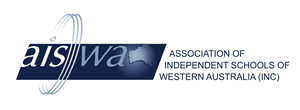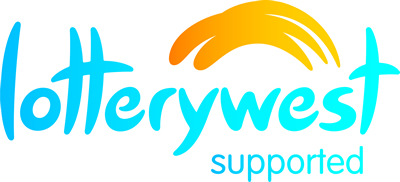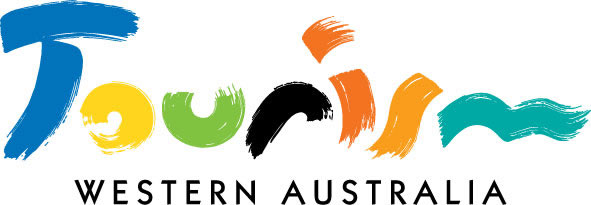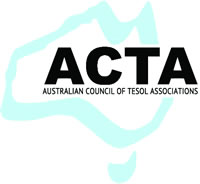Keynote Speakers
The ACTA-ACAL Conference Management Committee is delighted to confirm that the following keynote speakers feature in the program at the forthcoming Conference.
Dr Mark Pegrum, University of Western Australia
 Mark Pegrum is Associate Professor in the Faculty of Education at The University of Western Australia, where he specialises in mobile learning and, more broadly, e-learning. His teaching has been recognised through Faculty and University Excellence in Teaching Awards, as well as a national Australian Learning & Teaching Council (ALTC) Excellence in Teaching Award.
Mark Pegrum is Associate Professor in the Faculty of Education at The University of Western Australia, where he specialises in mobile learning and, more broadly, e-learning. His teaching has been recognised through Faculty and University Excellence in Teaching Awards, as well as a national Australian Learning & Teaching Council (ALTC) Excellence in Teaching Award.
His current research focuses on mobile technologies and digital literacies. His recent books include: Brave New Classrooms: Democratic Education and the Internet (co-edited with Joe Lockard; Peter Lang, 2007); From Blogs to Bombs: The Future of Digital Technologies in Education (UWA Publishing, 2009); Digital Literacies (co-authored with Gavin Dudeney & Nicky Hockly; Pearson/Routledge, 2013); and Mobile Learning: Languages, Literacies and Cultures (Palgrave Macmillan, 2014).
He is an Associate Editor of the International Journal of Virtual and Personal Learning Environments, a member of the Editorial Boards of Language Learning & Technology and System, and a member of the Review Panel of the International Journal of Pedagogies and Learning. He currently teaches in Perth, Hong Kong and Singapore, and has given presentations and run seminars on e-learning and m-learning in Australia and New Zealand, Asia and the Middle East, the UK and Europe, and South America.
Further details can be found on his wiki.
Abstract: Yet Another Literacy? Mobile Devices, Mobile Learning, and Mobile Literacy
As our desktop and laptop computers give way to mobile technologies, our literacies will be increasingly mediated by our smart devices, making mobile literacy the key digital literacy of our time. So are we, as educators, along with our students, faced with acquiring yet another literacy?
Yes, in the sense that mobile literacy is a new macroliteracy that pulls together other digital literacies in a particular constellation. But at the same time, no, in the sense that as a macroliteracy, mobile literacy is composed of a range of existing literacies. Long-established literacies, like information and multimodal literacy, take on new inflections within mobile literacy. More newly established literacies, like network literacy and code literacy, take on added importance.
We will see how different types of mobile learning can foster different combinations of these literacies. We will see, too, that as language teachers, we must consider how best to support the development of our students' mobile literacy including, crucially, their critical mobile literacy. Indeed, if we fail to help our language learners develop digital literacies in general, and mobile literacy in particular, we are denying them the opportunity to acquire the skills they need to process and produce language effectively in the 21st century, across the whole range of personal, work, and civic contexts that make up our ever more mobile society.
Dr Androula Yiakoumetti, Oxford Brookes University
 Dr Androula Yiakoumetti is an applied linguist whose research focuses on regional and social variation within linguistic systems and, more specifically, on the implications of such variation for education. She is interested in sociolinguistic aspects of linguistic variation and works within the research fields of multidialectism and multilingualism, second-language acquisition and development, and language-teacher development.
Dr Androula Yiakoumetti is an applied linguist whose research focuses on regional and social variation within linguistic systems and, more specifically, on the implications of such variation for education. She is interested in sociolinguistic aspects of linguistic variation and works within the research fields of multidialectism and multilingualism, second-language acquisition and development, and language-teacher development.
Her publications span a variety of language issues including bidialectism, language attitudes, learning English as a foreign language, language policy and practice in an era of super-diversity, and language-teacher training.
She is the editor of Harnessing Linguistic Variation to Improve Education (2012, Peter Lang) and Multilingualism and Language in Education: Sociolinguistic and Pedagogical Perspectives from Commonwealth Countries (2015, Cambridge University Press).
Abstract: Utilising Linguistic Variation for Better Education
Language in education deserves heightened attention in the increasingly linguistically-diverse classrooms that are typical of a modern world that is characterised by processes of globalisation, transnationalism and transmigration. These processes have inextricable linkages with language power relations. It is imperative then that we ask how language education can be optimised in settings where language power relations are based on economic, political or social factors rather than linguistic processes.
Research clearly demonstrates that incorporating linguistic diversity into education and utilising the entire linguistic repertoire of learners can lead to social, cultural, pedagogical, cognitive and linguistic advancement. In spite of this evidence, many educational contexts worldwide continue to promote the exclusive use of traditionally-dominant languages.
I draw on research carried out in various settings (including Australia, Canada, Cyprus, and the United States) which (1) highlights the valuable educational roles of learners' mother tongues and (2) evidences the positive role that translanguaging practices can play in education. In doing so, I argue for the promotion of Indigenous languages, minority languages, Creoles and nonstandard varieties in formal education alongside those which are traditionally dominant. I emphasise the central significance of language educators, the importance of teacher training, and the need for creating educational programmes which are informed by the specific linguistic landscapes in which they are to be employed. I also emphasise the importance of language attitudes and the benefits derived when parents and other community members are involved in students' language education.
In drawing together advice on the optimisation of language education in linguistically diverse settings, I conclude that both low-status and traditionally-prestigious varieties ought to be concurrently used for ideal educational outcomes. I therefore argue in favour of both multilingualism and multiculturalism while pointing out how timely a much desired paradigm shift in language education planning would be.
Carol Garlett, Department of Education Services Western Australia
 Carol Garlett is a Whadjuk-Balladong Nyoongar woman who was born in Beverley, Western Australia and raised in Brookton by her parents Dick and Milly Reidy. Her extensive family is drawn from the Reidy-McGuire-Bennell-Collard-Garlett network. Carol is a leader in Aboriginal education in Western Australia. After 19 years as a primary teacher, she joined the Central Office of the WA Department of Education and became the first woman to be appointed as Director of Schools in the Kimberley region of WA where she provided strategic direction in collaboration with the Kimberley District Education Board, the Kimberley Aboriginal Education Advisory Council and the school principals.
Carol Garlett is a Whadjuk-Balladong Nyoongar woman who was born in Beverley, Western Australia and raised in Brookton by her parents Dick and Milly Reidy. Her extensive family is drawn from the Reidy-McGuire-Bennell-Collard-Garlett network. Carol is a leader in Aboriginal education in Western Australia. After 19 years as a primary teacher, she joined the Central Office of the WA Department of Education and became the first woman to be appointed as Director of Schools in the Kimberley region of WA where she provided strategic direction in collaboration with the Kimberley District Education Board, the Kimberley Aboriginal Education Advisory Council and the school principals.
Carol's total commitment to improving educational outcomes for Aboriginal people also includes her work as Chairperson of the Western Australian Aboriginal Education and Training Council (WAAETC), where she advised on government policy and coordinated and monitored the Western Australian Strategic Plan for Aboriginal Education and Training. Recently Carol has been engaged to guide reform programs within the Department of Corrective Services.
Abstract: Exchanging Ways of Being – an Aboriginal Perspective
Exchanging ways of being is an inspirational and aspirational call to action. It entails an invitation to walk in more than one world, to understand, accept and accommodate difference. In Western Australia, we have focused for many years on the principle of Two-Way education, largely in schools but more recently in the adult education and training sector. These Two-Way programs recognise that language is more than the sounds we make or the words that appear on the page. Language hoards and transmits culture – belief systems, values, social practices. The English language, in its many varieties, does not serve a single culture. Language difference can point to cultural difference, but not cultural deficit. Why is it then, that mainstream institutions – schools, courts, prisons, welfare agencies – conduct their business as if there really were just one English language, just one way of being, with disastrous effects for Aboriginal people?
I want to provide some personal, first hand observations on the importance of recognising language difference if we are to truly exchange ways of being as a starting point for addressing social inequality.
Bill Barton, Past President of International Commission on Mathematical Instruction
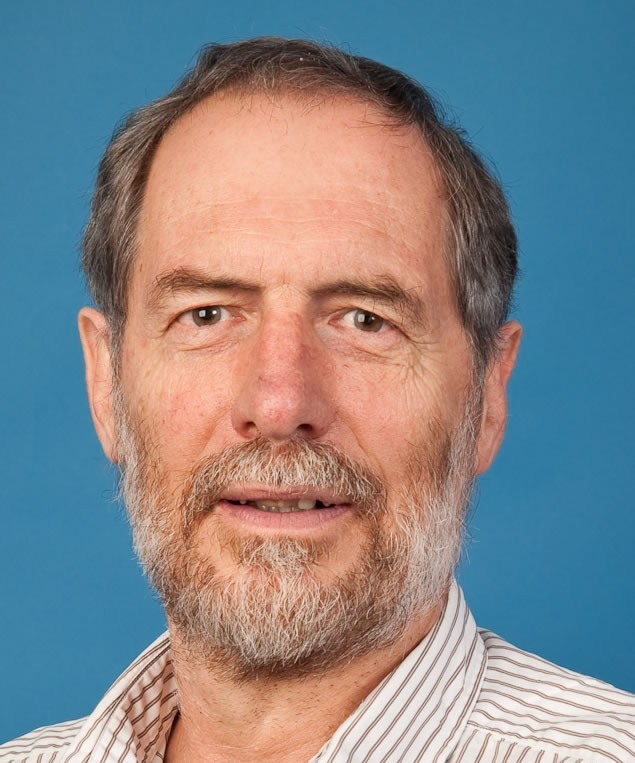 I was born in New Zealand, and throughout my childhood moved around the country as my father moved from school to school. At the age of 14 we went to Khartoum where my father had a UNESCO position and so began my love for travel and interest in other cultures. I learned to sail on the Nile, and continued my NZ schooling by correspondence. I returned to finish schooling in Auckland, and then entered The University of Auckland where I majored in mathematics, first for a BSc, then a Masters. During this time I again visited my parents, now in Tripoli, Libya, and taught for a short time, developing a love for teaching that has never paled.
I was born in New Zealand, and throughout my childhood moved around the country as my father moved from school to school. At the age of 14 we went to Khartoum where my father had a UNESCO position and so began my love for travel and interest in other cultures. I learned to sail on the Nile, and continued my NZ schooling by correspondence. I returned to finish schooling in Auckland, and then entered The University of Auckland where I majored in mathematics, first for a BSc, then a Masters. During this time I again visited my parents, now in Tripoli, Libya, and taught for a short time, developing a love for teaching that has never paled.
Returning to New Zealand I completed a post-graduate teaching Diploma and began several years secondary school teaching while also studying for a Masters degree in Education. Fifteen years in this career included three important periods. One was a period of four years teaching at the University College of Botswana, Lesotho and Swaziland. This period taught me about the importance of language. The second was producing two series of public television programmes. This taught me about popularising mathematics. The third was being involved in a project to develop the indigenous Maori language of New Zealand so that it could be the language of instruction for mathematics. This taught me about the joys of research.
I moved from my final secondary teaching position (in a Maori-English bilingual unit) into teacher education, and began my PhD in Ethnomathematics. Thence, in the early nineties, I moved to the Department of Mathematics at The University of Auckland to teach undergraduate and postgraduate mathematics education.
I have been in this Department for over 20 years, taking my turn as Head of Department, continuing to teach, and undertaking research. As part of these I have been editor of both the Australasian regional Mathematics Education Research Journal, and an Assistant Editor of Educational Studies in Mathematics. My research interests are two-fold. Following my interest in the Maori language and studies in Ethnomathematics, I have investigated the way widely different languages express mathematical ideas. A book on this subject was published at the end of 2008. With a topologist colleague, I have also undertaken a study of the ways in which language affects the mathematical thinking of research mathematics. Other language research concerns the experiences of those learning mathematics in English when it is not their first language (this is joint work with my wife who is an English language lecturer).
My second research interest was with the development, particularly the mathematical development, of secondary teachers; but has now moved into the area of undergraduate mathematics education.
I was elected to the Executive of the international body of mathematics education (ICMI-International Commission on Mathematical Instruction) in 2007, becoming President in 2010-2012, and remain as Past President in the current executive. As part of my international work I coordinate the Klein Project (a web resource on contemporary mathematics for secondary teachers) and initiated the CANP project that creates networks of mathematics educators in developing countries.
Abstract: Numeracy as Cultural Exchange
Surely ½ + ¼ is always ¾? Isn't mathematics exactly that purest form of knowledge that transcends culture? Doesn't mathematics describe the world objectively? No, no, and no. Or, perhaps, "it depends" is a better answer.
Historically, many people (mathematicians, scientists, teachers, in fact nearly everyone) have assumed the answer to all those questions was "yes", and this has been part of the reason that mathematics is imposed upon all children for several hours a week for at least nine years alongside a regime of tests, personal judgements, angst, and crowing.
So if the answer is "no" (x3), or "it depends", what about mathematics education, or numeracy? If mathematics is culturally dependent what does numeracy mean, and how should we teach it?
I will explore how I would answer these three questions, and then use these answers to guide a not-so-radical agenda for numeracy education that includes the idea of cultural exchange. I will also address the rather trickier question of how to make the transition from our present regime to a more human, not to mention humane, education.
Dr Vicky Duckworth BA (Hons); PGCE; PG Dip; MEd; MA: PhD
 Vicky has developed considerable expertise in Adult Literacy and Education and is deeply committed to challenging inequality through critical and emancipatory approaches to education, widening participation, inclusion, community action and engaging in research with a strong social justice agenda. She has drew on a critical perspective, applying Bourdieu's work as the theoretical framework, as well as using a range of feminist, sociology of education, literature on the ethics of care and critical literacy pedagogy, including the New Literacy Studies to explore and add to the debate on the impact of violence and trauma on learning, possibilities, resistance and transformation and its link to class, gender, ethnicity and literacy (Duckworth 2013, 14, 15).
Vicky has developed considerable expertise in Adult Literacy and Education and is deeply committed to challenging inequality through critical and emancipatory approaches to education, widening participation, inclusion, community action and engaging in research with a strong social justice agenda. She has drew on a critical perspective, applying Bourdieu's work as the theoretical framework, as well as using a range of feminist, sociology of education, literature on the ethics of care and critical literacy pedagogy, including the New Literacy Studies to explore and add to the debate on the impact of violence and trauma on learning, possibilities, resistance and transformation and its link to class, gender, ethnicity and literacy (Duckworth 2013, 14, 15).
Most recently she co-explored the gradual evolution of Adult Literacy policy in the UK from the 70s to the current decade; drawing on philosophical, sociological and economic frames of reference from local, national and International perspectives, and the application of empirical data the research argues that the value positions of instrumentalism, driven by the now dominant human capital philosophy has gradually taken control of adult literacy policy and its attendant practice. An alternative curriculum is offered; a transformative model that presents a more socially just different value position (Ade-Ojo and Duckworth 2015). She has advised on policy and is a member of a number of National and International networks, which includes her role as trustee of the Helena Kennedy Foundation (http://www.hkf.org.uk/) (http://www.unaglobal.org/) and membership of the board for the Association for Research in Post-Compulsory Education (http://arpce.org.uk/about/)
Throughout her career Vicky has published widely which consists of authoring and editing books, most recently this includes: Learning Trajectories, Violence and Empowerment amongst Adult Basic Skills Learners (Routledge, 2013); Landscapes of Specific Literacies in Contemporary Society: Exploring a social model of literacy (Routledge 2014); Adult Literacy Policy and Practice: From Intrinsic Values to Instrumentalism (Palgrave 2015).
Abstract: Dis-entangling Literacy from neoliberal fusion: creating critical spaces for emancipatory learning and justice
Adult literacy has gradually made its way into the heart of policy discourse in general and policy making in particular. Driving its intermittent change is the underlying philosophical perception of what education is in general and what adult literacy is in particular. Evidence from contemporary policy and practice suggests that adult literacy, both in policy and practice, has gradually evolved from being seen as a cause of social malaise to being seen as the cure for such social malaises. In effect, adult literacy policy and practice has assumed an instrumental characteristic which has shaped and constructed the dominant discourse around adult literacy (Ade-Ojo & Duckworth, 2015).
This keynote explores potential alternatives to the dominant philosophy, policy and practice. Informed by sociological and critical educational frames that recognise the political, social, and economic factors that conspire to marginalise learners, it offers a transformative approach to adult literacy whilst also locating the model in an underpinning philosophy (Duckworth & Ade-Ojo, 2014). Rich empirical data from practice is probed to offer a justification to the recognition accorded the model. For example, the misrecognition of certain held dispositions that 'legitimatize' classed and gendered inequalities is exposed and redressed arguing that we need to look at issues of violence and trauma, such as the ones exposed in the narratives of the learners in my recent study, not as isolated accounts, but relate them to the structural inequalities in people's lives. It offers an indicator of the relationship of the learners to the state and the social values which uphold this (Duckworth, 2013). The analysis argues that a different value position to the dominant curriculum, could yield a different approach to practice. This is illustrated with transformative and emancipatory literacy, which derives its values from a libertarian, equality and justice base (as against an instrumentalist base). Exposed are how changes to policy and practice could inform and shape the literacy curriculum and indeed pedagogy; a central driver suggested being adult education/literacy dis-entangling itself from neoliberal fusion and creating critical space for contextualised and emancipatory learning.
Dr Jennifer Hammond, University of Technology, Sydney
 Dr Jennifer Hammond is an Honorary Associate and Associate Professor in the Faculty of Arts and Social Sciences, University of Technology Sydney. She has taught for many years in the fields of language and literacy education, EAL education and research design. Her research interests are in literacy development; classroom interaction, and the implications of socio-cultural and systemic theories of language and learning in EAL education. With colleagues, she has completed research into the nature of high challenge, high support pedagogies designed to meet the needs of EAL students in mainstream classes. She has published widely in these areas.
Dr Jennifer Hammond is an Honorary Associate and Associate Professor in the Faculty of Arts and Social Sciences, University of Technology Sydney. She has taught for many years in the fields of language and literacy education, EAL education and research design. Her research interests are in literacy development; classroom interaction, and the implications of socio-cultural and systemic theories of language and learning in EAL education. With colleagues, she has completed research into the nature of high challenge, high support pedagogies designed to meet the needs of EAL students in mainstream classes. She has published widely in these areas.
She has also completed recent research addressing the needs of newly arrived EAL and refugee students in Australian schools, and in 2016 will be undertaking a follow up project designed to implement the research outcomes and recommendations. With Jenny Miller, she coedited the book Classrooms of possibility: Supporting at-risk EAL students (PETAA, 2015). A chapter based on her research with refugee students is included in that book.
Abstract: Classrooms of possibility: working with refugee students
This paper addresses the conference theme of 'Exchanging Ways of Being' by focusing on the educational strengths and needs of refugee students. The paper addresses in particular the sub-themes of Migrant and refugee language and literacy for learning and settlement; and Language and literacy planning for social justice and equity. While primarily located in the context of school education, the paper draws broader implications for those working with adult learners.
Prior to their arrival in Australia, many refugees have experienced trauma, some have experienced minimal or disrupted education, and some have had minimal opportunities to develop literacy abilities either in their mother tongue or in subsequent languages. As a result, many face considerable challenges with education in their new country – whether as school students or as adult learners. For many teachers, the presence of refugee students in their classes also presents challenges: students bring very different levels of educational knowledge to the classroom, and they often have very different language and educational needs from those of other students. A consistent request from teachers, particularly in schools, is for information and help regarding ways of better supporting their refugee students, while at the same time continuing to meet the needs of other groups of students within their classes.
In this paper I will attempt to respond to such requests: first, by presenting outcomes from a research project that addressed the nature of current teaching and learning practices experienced by refugee students in mainstream school classes, and second, by proposing ways forward in terms of practices designed to address the needs of such students.
The research project was a small qualitative study conducted in four schools – two Intensive English Centres (IECs) and two mainstream high schools. It was underpinned by the assumption that equitable access to education for all students, including refugee students, requires access to high challenge curricula, as well as high levels of differentiated support. Data collected in the research consisted of lesson observations and recordings in key curriculum areas and interviews with school executives, teachers and groups of students. Findings from the research highlighted a number of strengths in current teaching practices but also identified teaching and learning practices that could be further strengthened to acknowledge the contribution of refugee students, and to address their specific needs. Details of these findings, and their implications for ways forward in teaching refugee students will be addressed in the paper.
Dr Ullrich Ecker, University of Western Australia
 Dr Ullrich Ecker is a cognitive scientist and a Senior Lecturer at the University of Western Australia's School of Psychology.
Dr Ullrich Ecker is a cognitive scientist and a Senior Lecturer at the University of Western Australia's School of Psychology.
Ullrich is an internationally recognized expert on memory updating and reasoning; in particular, his research focuses on how misinformation affects the way people make judgements and form beliefs. Ullrich won the 2011 UWA Young Investigator Award, the 2014 UWA Vice-Chancellor's Research Award, and was a finalist for the 2012 Western Australian Early-Career Scientist of the Year Award.
Ullrich first migrated to Australia as a toddler but returned to his native Germany in later childhood. He obtained his PhD from Saarland University (Germany) in 2007 before again moving to Australia in 2008, together with his wife and two young children, to join the University of Western Australia.
Abstract: The Challenges of Misinformation
Misinformation is everywhere. Vaccinations cause autism (they don't), the climate is cooling (it's not), and private school kids do better at university (they don't). Unfortunately, retracting these myths—simply saying they are not true—does very little to alleviate the effects of misinformation. Poorly designed campaigns to debunk myths can even backfire and ironically strengthen the misconceptions they set out to refute. Misinformation is thus a serious threat to informed decision making and evidence-based practice.
In the context of teaching and learning, misinformation regarding particular student groups (such as migrants, Aboriginals, or older adults) can lead to disadvantage; myths regarding the basic foundations of teaching and learning (e.g., that anyone can teach; that learning success is a simple function of intelligence and effort, etc.) can lead to suboptimal governance and can thus exacerbate social inequity.
In my talk, I will elaborate on the cognitive mechanisms that give rise to misinformation effects on people's memory and reasoning. I will address the impact of pre-existing attitudes and beliefs, and I will argue that misinformation effects are facilitated by the contemporary media landscape. Finally, I will discuss ways to more successfully correct misconceptions, highlighting the importance of scepticism and effective communication strategies.

